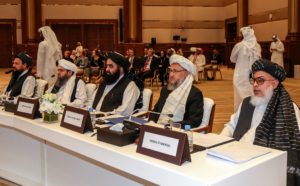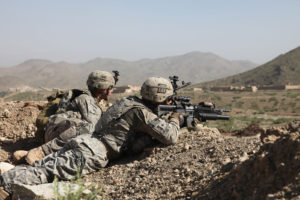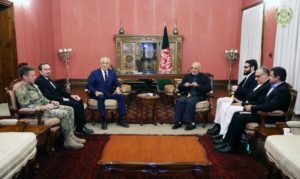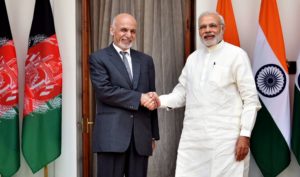Maj Gen Rajiv Narayanan, AVSM, VSM (Retired) Writes :On the 29 February 2020, the USA and Taliban signed the much-delayed deal in Doha, Qatar, named as ‘The Agreement to Bring Peace to Afghanistan’. It has since found much traction only in the media as the Peace Deal, but on ground things have spiralled from bad to worse,
Afghanistan - 2. page
AFGHANISTAN: FROM CONFLICT TO CONFLICT
Gaurav Kumar Writes:The idea of symmetric response in civil wars is driven by the belief and logic of reciprocity-to establish or maintain broad patterns of proportionate response. However, the burgeoning difference between the Taliban and the Afghan Government has never been so evident as it has been since the signing of the agreement between the US and the Taliban on 29 February 2020.
THE AFGHAN DEAL: Dangerous Implications
Ajay Singh Writes : The Deal On 9 March, the newly elected Afghan President Ashraf Ghani was taking the oath in the Parliamentary lawns at Kabul. Just a block away, […]
Breaking Down of the Peace Process
Gaurav Kumar Writes : The attack on the Kabul gurudwara on 25 March 2020 allegedly by the Islamic State of Khorasan Province (ISKP) killing many devotees has clearly exposed the […]
Reading the Tea Leaves IV – Elusive Afghan Peace on the Eve of Eid
Lt Gen GS Katoch, PVSM, AVSM, VSM (Retd) writes as Mr Zalmay Khalilzad is preparing for the seventh round of talks in June at Doha, he and the US have to make some dire choices regarding the facilitation of the peace talks. The Taliban have rejected the offer for Eid ceasefire and vowed to continue fighting.
“Fragile Past, Unstable Future”: Assessing India’s Strategic Partnership With Afghanistan
Anant Mishra writes, New Delhi should remain committed and dedicated towards rebuilding Afghanistan. Strategically, this policy would ensure significant presence in Afghanistan without interfering in the already complex Afghan domestic politics.
- « Previous
- 1
- 2
- 3
- 4
- Next »




